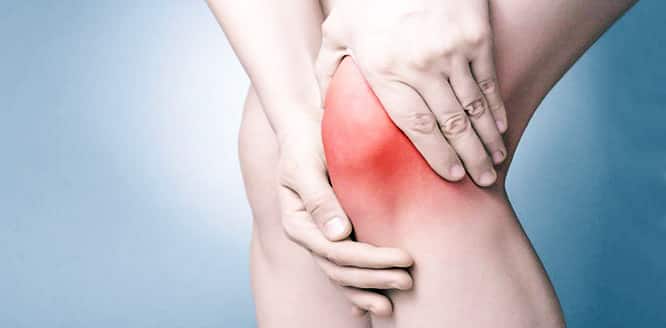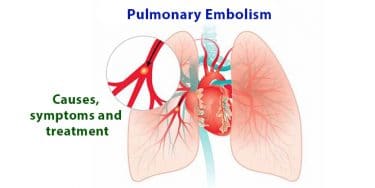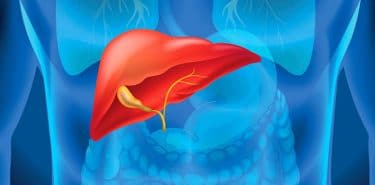Inflammation is the defense method used by the body to eliminate germs, harmful substances and dead cells. Infection can occur for many reasons, including infections caused by bacteria and viruses, chemical substances, or particles entering the body. Rapid onset and short-lasting inflammation is called acute; slow-moving and long-lasting inflammation is called chronic. Redness, swelling, pain, heat increase and loss of function in affected area are the main symptoms of it. Infections can be treated by antibiotics, anti-fungal and anti-parasitic drugs and creams. In case of chronic inflammation, anti-inflammatory drugs such as cortisone are used. Foods containing processed sugar and fats like margarine damage tissues and increase inflammation. Fiber foods like salmon, tomatoes, blueberries, hazelnuts and olive oil decrease risk of inflammation.
Table of Contents
What is inflammation?
Inflammation is the defense method used by the body to eliminate germs, harmful substances, foreign particles, dead cells and tissues. It has many successive stages where immune system cells and blood vessels operate.
Types of inflammation
There are two types of inflammatory conditions: acute and chronic.
- Acute inflammation: It has a rapid and early onset, it soon becomes severe and its symptoms end in a few days.
- Chronic inflammation: It starts slowly and lasts for a long time, even several months.
Causes of inflammation
The causes of acute and chronic inflammation are different such as following:
- Infection agents such as bacteria, viruses, fungi, tuberculosis
- Injuries such as abrasions, scratches, cuts
- Damages caused by foreign particles
- Chemical particles: Substances such as silica, coal dust cannot be completely destroyed or removed by the immune system, and cause continuous inflammatory condition.
- Autoimmune diseases: Diseases such as systemic lupus erythematosus, rheumatoid arthritis caused by the body’s immune system attacking its own tissues
WARNING: Conditions such as smoking, obesity, alcohol use, stressful life, advanced age, low levels of male and female sex hormones, sleep disorders and diet with refined sugar, saturated fats, trans-fats facilitate the formation of chronic inflammation.
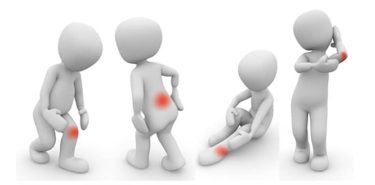
What are inflammatory diseases?
- Acute bronchitis
- Sinusitis, tonsillitis
- Acute appendicitis
- Rheumatoid arthritis
- Psoriasis due to arthritis, gouty arthritis
- Dermatitis (eczema)
- Asthma, chronic obstructive pulmonary disease (COPD)
- Tuberculosis
- Gingivitis
- Chronic peptic ulcer
- Intestinal diseases such as ulcerative colitis, Crohn’s disease
Symptoms of inflammation
Symptoms of acute inflammation
- Rashes
- Pain
- Body heat increase
- Swelling
- Loss of function: limitation of movement of inflamed joint, shortness of breath in bronchitis
- Fever and increase in heart rate due to fever
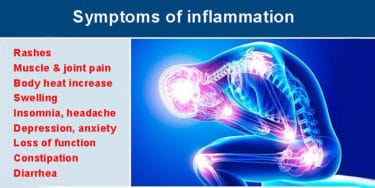
Inflammation does not always reveal these symptoms. Some inflammations occur invisibly. Symptoms of chronic inflammation vary depending on the disease. In addition to the above mentioned symptoms:
Symptoms of chronic inflammation
- Muscle and joint pain
- Persistent weakness and fatigue
- Depression, behavioral disorders, anxiety
- Insomnia, headache
- Constipation, diarrhea
Diagnosis of inflammation
- Medical history: Associated diseases and drugs that are used are investigated as well as when the symptoms have started, which problems are experienced the most, the conditions in which the symptoms have increased or decreased.
- Physical examination: It is checked if swelling, heat increase or redness exist in joints, and, if any, which joints are most affected. In the case of rheumatoid arthritis, the presence of morning stiffness is examined in detail.
- Laboratory tests: In the case of acute inflammation, the body’s defense cells get activated and the number of white blood cells increases. In some diseases with chronic inflammation, anemia may occur. Therefore, a complete blood count test is performed. When it occurs in the body, parameters such as increased levels of erythrocyte sedimentation rate, CRP, procalcitonin in blood are measured. Electrolyte values (sodium, potassium) or liver and kidney function tests can be examined to detect underlying disease.
- Imaging methods: Since many different diseases can cause inflammation, imaging methods such as ultrasound, computed tomography and MRI are used. Sometimes a biopsy sample may be required for definitive diagnosis.
Treatment of inflammation
Inflammation is a defense mechanism of the body. Some changes in the body may occur due to secretions from some cells involved in this mechanism. Symptoms such as pain, swelling create discomfort in patients. If these symptoms are excessive, they need to be treated.
The inflammatory process will end when underlying reasons are treated. The treatment processes of acute and chronic inflammation are different. Treatment options vary depending on the nature of the inflammation, the patient’s age, the drugs used, the general health status and the severity of the symptoms.
Treatment of acute inflammation
The most common cause of acute inflammation is infection. Microorganisms causing infection should be detected, and the appropriate treatment should be started. Acute inflammation can be accompanied by symptoms such as fever, phlegm, cough, pain, and runny nose.
Acute inflammation can be caused by acute exacerbations when the treatment of chronic inflammatory diseases is disrupted or when a triggering factor is encountered. In this case, acute inflammation causes and triggers should be reviewed and treated.
https://www.healthandmedicine.net/what-is-psoriasis-symptoms-causes-and-treatment/
Treatment of chronic inflammation
Treatment will change depending on the causes of chronic inflammation and it can be categorized under two headings: treatment of the underlying disease, and treatment of symptoms related to the disease. Physical therapy and rehabilitation may be necessary in cases such as joint pain and the loss of function due to some chronic inflammatory joint diseases. Avoiding from certain factors that may facilitate the development of chronic inflammation is also an important part of the treatment.
Medicines used in the treatment of inflammation
- Cortisone drugs: Usually given in diseases that cause chronic inflammation. It can sometimes be used in cases of acute inflammation. They are anti-inflammatory drugs. Dexamethasone and methylprednisolone are in this group. They should be used under the supervision of a doctor as they may cause serious side effects when used for a long time. Its main side effects are hypertension, sugar elevation, bone resorption and suppression of the immune system. Cortisone medications that are used for a long time should not be stopped suddenly. It should be gradually reduced under medical supervision.
- Non-steroidal anti-inflammatory drugs (NSAIDs): Drugs such as diclofenac, ibuprofen and piroxicam, commonly used as painkillers, are in this group. These drugs are used especially in chronic inflammatory diseases due to their analgesic and anti-inflammatory effects. They should be administered under close medical supervision as they will cause kidney and liver failure if used too often.
- Antibiotics: Drugs such as amoxicillin and clarithromycin are used in the treatment of bacterial infections.
- Anti-parasites: Drugs such as mebandazole and hydroxychloroquine, are used in parasitic infections such as threadworm, tapeworm and malaria.
- Anti-fungals: Drugs such as fluconazole, are used for inflammations caused by fungi
- Drugs affecting the immune system: Drugs such as methotrexate, azathioprine and cyclophosphamide are used in order to suppress persistent inflammation and to stop cortisone treatment used for a long time. There are serious potential side effects affecting the blood cells, clotting cells and immune cells.
Creams
- Antibacterial creams: Creams containing fusidic acid, isoconazole. These creams are used if there is inflammation caused by bacteria or fungal infection on the skin surface.
- Anti-inflammatory creams: Creams containing cortisone or painkillers are used to suppress inflammation in many inflammatory diseases such as rheumatoid arthritis.
Anti-inflammation diet
Change of nutrition to decrease inflammation is very important.
- Low glycemic food should be consumed. Foods containing refined (processed) sugar and corn syrup should be avoided. Foods such as sausage and salami should not be consumed.
- Fats: Saturated and synthetic transfats trigger inflammation. Using soybean oil containing Omega-3, corn oil, sesame oil, olive oil is helpful in preventing inflammation.
- Vegetables and fruits: Natural antioxidant content is higher in foods such as blueberries, apples, Brussels sprouts, broccolis, cauliflower, cabbages, avocadoes and tomatoes. They have anti-inflammatory effects.
- Fiber foods: Consuming fiber foods reduces the level of some substances that are active in the process of inflammation.
- Tea: The polyphenol content in green tea has the ability to reduce inflammation.
- Vitamins and Minerals: Foods containing magnesium, zinc, selenium, vitamin D, vitamin E reduce the inflammatory process due to their antioxidant contents.
- Mediterranean diet: It is rich in fruits and vegetables, salmon, tuna, hazelnut, walnut, olive oil, soybean oil, grains, which all contain anti-inflammatory properties.
Is inflammation contagious?
If infection agents, which are among the causes of acute inflammation, are transmitted from person to person and cause the same disease in the infected person, the inflammation becomes contagious. For example, sexually transmitted diseases create infection. However, diseases with chronic inflammation such as rheumatoid arthritis are not contagious.
Inflammatory rheumatism
Chronic inflammation is among the causes. It is more common around 30-50 years old and in women. It may start with symptoms such as fever, weakness, fatigue, weight loss, joint pain. The most important symptom is morning stiffness. Stiffness in the joints after sleep or a long rest is called morning stiffness. Swelling occurs in many joints, especially in the hands and feet. Redness in the joints is not expected.
If there is redness, other diseases are considered. Inflammatory rheumatism may also cause damage to other organs such as the heart, lungs, eyes. This disease is a progressive disease that lasts for a long time and can cause permanent disabilities.
Inflammatory wounds
As a result of the destruction of the skin integrity, the process of inflammation begins on the skin. Symptoms such as redness, swelling, temperature increase and pain are observed in that area. Destruction of skin integrity may be caused by infectious agents such as bacteria or by exposure to chemicals.
There are several reasons why the inflammation process continues. It could be due to lack of proper hygiene and that the damaged skin gets into contact with other foreign bodies.
In addition, a disease such as diabetes that facilitates infection and wound formation also affects the process badly. A bedsore due to a long stay in bed after operations or diseases such as stroke creates a serious inflammatory wounds.
Inflammatory acne
Acne is caused by obstruction of the sebaceous glands at the base of the hair follicles. In areas such as the face, back, and nape, acne occurs more frequently. Painful, swollen, large pimples are called inflamed acne. If these pimples take long to heal, traces may occur in the skin. When necessary, antibiotic creams and pills and vitamin A-derived pills are used for treatment.
Suggestions and warnings for inflammation
- Pay attention to hygiene rules.
- If you want to lose weight, start with a healthy diet and proper exercise. Fat tissue causes a systemic inflammation in the body, prepares the ground for the onset of inflammation.
- Do not use antibiotics without a doctor’s prescription. As unnecessary antibiotics harm the healthy microorganisms in the gut, more harmful microorganisms replacing them can trigger inflammation.
- Regularity of sleep pattern is important for the regeneration of tissues. Avoid insomnia.
- Due to continuous psychological stress, the body loses its ability to manage inflammatory processes. Methods such as yoga and meditation can help reduce the effects of stress-related inflammation. You can also get support from a psychiatrist or a psychologist.
- Consume food that has anti-inflammatory properties.
- Exercise regularly.
- Do not disrupt the treatment initiated by the doctor.

